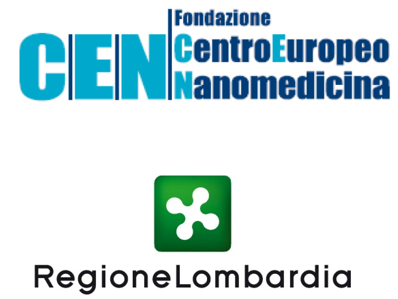






__________________________________________________________________________________________________________________
Projects
CEN project 'Mathematical Modeling of Nanoscale Therapeutic Systems'(PI: 2012-2015)
Recruited Staff
Chiara Giverso (post-doc),
Matteo Taffetani (post-doc),
Anna Zanzottera (post-doc),
ABSTRACT
The scientific program of the research group focuses on the development and implementation of multi-scale mathematical tools, for the study of complex biological systems. As far as the strategic interest is concerned, mathematical modeling activities have the double aim of providing clinical data interpretation/validation and optimizing the design of new nanotechnological devices. In particular, during the first years the research activities will address some fundamental issues in biology, with immediate fallouts in medical application; investigation scales ranging from sub-cellular to tissue. One of the main research directions focuses on the study of diffusion and transport properties in tumor vascularized tissues. A fundamental factor in the success of anti-tumor therapies is the capacity of penetrating the tumor mass for reaching the targeted cells, preventing their uncontrolled proliferation. The development of new pharmacological treatments must therefore take into account the pharmaco-kynetic study of its temporal distribution through the vascular network, and the transport properties through the capillary walls and the extra-cellular matrix. The combination of such processes concerns different scales, including mesoscopic phenomena of advection/diffusion and adhesive dynamics on molecular scale, allowing to identify the drug receptors on the tumor cell. This research aims at developing multi-scale mathematical modeling tools to enhance anti-tumor therapies' efficacy. In order to define and calibrate predictive models, the research will be networked with experimental research groups in order to carry out the clinical validation of the proposed models. With regard to the priorities addressed by the first research phase of the CEN Foundation, the research activities outlined above are enclosed in the 'Cancer' area. Another research field concerns the study of morphogenesis in biological systems, i.e. the emergence of a macroscopic shape resulting from out-of-equilibrium transport mechanisms at the micro-scale. Experimentally, it has been proved that morphogenetic processes are based on a combination of mechanical, geometrical, biochemical and transport effects: all of them are involved in the feedback mechanisms at the sub-cellular scale, but much theoretical work needs to be done for modeling this complex control system. Theoretical models and computational simulations of biological systems can potentially give insight to the basic mechanisms regulating morphogenesis in living matter. A quantitative, multi-scale analysis of the biological processes from molecules to tissues could lead to realistic predictions on morphologic evolution both in physiological and in pathological conditions
___________________________________________________________________________________________________________________________________________________________________________
Pasquale Ciarletta - Dipartimento di Matematica - Politecnico di Milano - Tel: (+39) 02 23994565 Cookie policy Privacy policy
Chiara Giverso (post-doc),
Matteo Taffetani (post-doc),
Anna Zanzottera (post-doc),
ABSTRACT
The scientific program of the research group focuses on the development and implementation of multi-scale mathematical tools, for the study of complex biological systems. As far as the strategic interest is concerned, mathematical modeling activities have the double aim of providing clinical data interpretation/validation and optimizing the design of new nanotechnological devices. In particular, during the first years the research activities will address some fundamental issues in biology, with immediate fallouts in medical application; investigation scales ranging from sub-cellular to tissue. One of the main research directions focuses on the study of diffusion and transport properties in tumor vascularized tissues. A fundamental factor in the success of anti-tumor therapies is the capacity of penetrating the tumor mass for reaching the targeted cells, preventing their uncontrolled proliferation. The development of new pharmacological treatments must therefore take into account the pharmaco-kynetic study of its temporal distribution through the vascular network, and the transport properties through the capillary walls and the extra-cellular matrix. The combination of such processes concerns different scales, including mesoscopic phenomena of advection/diffusion and adhesive dynamics on molecular scale, allowing to identify the drug receptors on the tumor cell. This research aims at developing multi-scale mathematical modeling tools to enhance anti-tumor therapies' efficacy. In order to define and calibrate predictive models, the research will be networked with experimental research groups in order to carry out the clinical validation of the proposed models. With regard to the priorities addressed by the first research phase of the CEN Foundation, the research activities outlined above are enclosed in the 'Cancer' area. Another research field concerns the study of morphogenesis in biological systems, i.e. the emergence of a macroscopic shape resulting from out-of-equilibrium transport mechanisms at the micro-scale. Experimentally, it has been proved that morphogenetic processes are based on a combination of mechanical, geometrical, biochemical and transport effects: all of them are involved in the feedback mechanisms at the sub-cellular scale, but much theoretical work needs to be done for modeling this complex control system. Theoretical models and computational simulations of biological systems can potentially give insight to the basic mechanisms regulating morphogenesis in living matter. A quantitative, multi-scale analysis of the biological processes from molecules to tissues could lead to realistic predictions on morphologic evolution both in physiological and in pathological conditions
Pasquale Ciarletta - Dipartimento di Matematica - Politecnico di Milano - Tel: (+39) 02 23994565 Cookie policy Privacy policy
